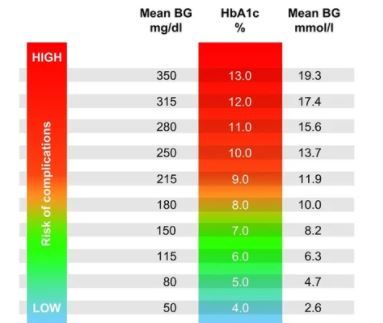- Clinical Technology
- Adult Immunization
- Hepatology
- Pediatric Immunization
- Screening
- Psychiatry
- Allergy
- Women's Health
- Cardiology
- Pediatrics
- Dermatology
- Endocrinology
- Pain Management
- Gastroenterology
- Infectious Disease
- Obesity Medicine
- Rheumatology
- Nephrology
- Neurology
- Pulmonology
Greater Glycemic Control May Impact Biological Aging in Adults with Type 2 Diabetes
Findings from exploratory analyses of participants with type 2 diabetes (T2D) in the landmark Look AHEAD (Action for Health in Diabetes) randomized clinical trial suggest that sustained higher levels of glycemic control (ie, HbA1c <7%) are associated with reduced increase in frailty index scores over time.
Investigators also found an independent relationship between slower increases in frailty index scores and both use of metformin and weight loss of >5% among the >4000 Look AHEAD participants. The results were published online in Diabetes Care.
According to investigators, led by Mark Espeland, PhD, of Wake Forest University School of Medicine, the slower progression of frailty in those achieving weight loss and those treated with metformin “may reflect slower biological aging.”

The Look AHEAD multicenter, randomized clinical trial evaluated the long-term differential effects of an intensive lifestyle intervention focused on weight loss vs conventional diabetes support and education on a composite outcome including cardiovascular death, nonfatal myocardial infarction, hospitalized angina, and nonfatal stroke among >5000 persons with T2D who had overweight or obesity. After 8 years, the Look AHEAD investigators reported that the intensive lifestyle intervention failed to reduce incidence of the primary outcome but was associated with significant weight loss and reduced the prevalence of cardiovascular risk factors. Further, many participants were able to maintain their weight loss recorded at 1 year throughout the 8-year study period.
In the current study, Espeland and colleagues aimed to describe cross-sectional and longitudinal associations between HbA1c levels and T2D control strategies deployed in Look AHEAD with baseline levels and 8-year changes in a deficit accumulation frailty index (FI), a marker of biological aging. The team identified 4169 Look AHEAD participants (aged 45-76 years) with sufficient data to compute FI scores at year 8 of follow-up. Analyses of variance and covariance were used to assess relationships between baseline and 8-year levels of HbA1c with changes in FI. Associations between changes in FI and use of diabetes medication classes and weight changes were assessed in analyses controlled for HbA1c.
FINDINGS
The researchers found that baseline and average HbA1c levels over time of <7%, vs those of as ≥8%, were associated with smaller increases in FI scores during the 8-year follow-up period (both P ≤.002). They report that the correlation between baseline HbA1c and FI was modest, and based on spline regression, was approximately linear. In analyses adjusted for HbA1c levels, Espeland et al also found that treatment with metformin and weight loss of >5% were independently associated with slower increases in FI.
In conclusion the authors wrote: “Lower HbA1c levels among individuals with diabetes are associated with slower biological aging as captured by a deficit accumulation frailty index. Strategies to control diabetes through weight loss or metformin use may also slow aging.”
Reference: Simpson FR, Justice JN, Pilla SJ, et al. An examination of whether diabetes control and treatments are associated with change in frailty index across 8 years: an ancillary exploratory study from the Action for Health in Diabetes (Look AHEAD) trial. Diabetes Care. Published online December 21, 2022. doi:10.2337/dc22-1728
